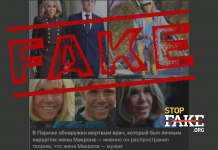TOPICS OF THIS WEEK
Russia to be further sanctioned for the use of chemical weapons and poisoning Alexei Navalny.
Austrian Ex-Foreign Minister. offered a job by the Kremlin.
The Kremlin compares Crimea to the Falkland Islands.
Good Old Soviet Joke
Stalin asked Soviet meteorologists, how accurate are their forecasts.
We are 40% accurate, Comrade Stalin!
Well, why don’t you say the opposite every time, and then you will be 60% accurate!
Policy & Research News
Britain contemplates further sanctions on Russia over chemical weapons
Reports suggest that Britain is contemplating additional sanctions on Russia – in coordination with the US – on top of the EU, US, and British sanctions introduced on March 2. Whereas last week’s sanctions primarily targeted Russian officials over the treatment of Russian opposition leader Alexei Navalny, supplementary measures could target oligarchs and even Russia’s sovereign debt over the use of chemical weapons. British government officials are unlikely to act before consulting with European counterparts in France and Germany in the coming weeks. However, it is likely that there will be increased pressure on the Organisation for the Prohibition of Chemical Weapons (OPCW) to investigate Russia’s use of illegal chemical substances. On March 4 – the anniversary of the 2018 poisoning of Sergei and Yulia Skripal – British Foreign Secretary Dominic Raab pressed “Russia to investigate, adhere to its obligations under the Chemical Weapons Convention and declare its Novichok programme to the OPCW.”
German, Swedish, and French laboratories independently identified Novichok – a substance produced by the Soviet Union and reportedly only used by Russia – in Navalny’s body in 2020. Last week, US intelligence confidently concluded that Russian security services had poisoned Navalny with the Novichok nerve agent. The assessment is in line with independent investigations that tie the GRU and FSB to several Novichok poisonings – including the Skripal and Navalny cases.
Russian Foreign Ministry spokesman, Dmitry Peskov, responded on March 4 that Russia complies with the Chemical Weapons Convention and “announced many years ago and verified the destruction of all the chemical weapons on its territory … Russia has no chemical weapons.” Peskov added that Russia is prepared for any scenario. However, financial markets already showed signs of instability on March 5, amid suggestions that Britain and the US could target Russian sovereign debt if Russian obstruction persists. Still, several EU member states are likely to be uncomfortable with drastically escalating tensions with Moscow. In 2018, US Treasury Secretary Steven Mnuchin opposed the option – warning that it would destabilize global markets. However, the US is now under new leadership and Britain has left the EU – perhaps both countries are now more inclined to pursue a tougher approach.
Austrian Ex-Foreign Minister offered a job by Kremlin
The former Austrian foreign minister, Karin Kneissl, has been nominated to the board of directors of the Russian state oil company Rosneft. Ms Kneissl, an independent, was picked by the far-right Austrian Freedom Party (FPÖ) to be the foreign minister when they entered into a coalition government from 2017 to 2019. She had already courted controversy when, as Minister, she danced with Russian President Vladimir Putin when he was a guest at her 2018 wedding. If she accepts the nomination, Kneissl will join German ex-chancellor Gerhard Schröder, another friend of Putin, on the board of Rosneft.
This latest development serves to highlight the extent of Russian influence in Austria, which has led to concern among analysts for the past few years (see our country comparison here). Owing to a long tradition of neutrality, Austria’s attempts to chart a middle course between East and West, coupled with vested energy interests, have led successive Austrian governments to be less concerned than other EU member states about Russia’s threat to European stability. Early in the last coalition government’s term, commentators noted the security implications of the FPÖ, one of the few parties in Europe to have signed an official cooperation agreement with Putin’s United Russia party, having control of the Austrian state security apparatus including the interior and defence ministries. Indeed, shortly after taking office, the FPÖ interior minister ordered a police raid on Austria’s own domestic intelligence service (the BVT) targeting the offices and homes of some BVT staff, in which data was seized relating to investigations into certain right-wing groups. As a result of the deteriorating state of the Austrian intelligence services, some European countries have had to limit intelligence sharing with Austria. Although the FPÖ are no longer in power, the failure of the BVT to prevent last November’s terror attack in Vienna coupled with recent revelations of a BVT agent selling secrets to Russia have led to calls for the agency to be disbanded and reformed. While this could be a step in the right direction, Austria has a long way to go in shaking off Russian influence.
US Developments
The Biden administration announces first sanctions on Russia for Navalny poisoning
The sanctions were announced by the US Departments of the Treasury, State, Commerce on March 2, expanding on existing sanctions under the Chemical and Biological Weapons Control and Warfare Elimination Act, add new export restrictions, and specifically target seven Russian government officials, including FSB Director Aleksandr Bortnikov, the Deputy Ministers of Defense Aleksey Krivoruchko and Pavel Popov, and Prosecutor General Igor Krasnov. The State Department’s Spokesperson stated that “the Secretary of State determined that the Government of the Russian Federation has used a chemical weapon against its own nationals, in violation of the Chemical Weapons Convention.” According to the New York Times, these sanctions are especially notable as they are the first President Biden has taken since he took office, six weeks ago.
Republican Senators pen letter denouncing Biden for failing to impose Nord Stream II sanctions
A group of 40 Republican Senators denounced Biden for his failure to impose sanctions on entities involved in the Nord Stream II pipeline in a letter dated March 3, 2021, stating that “the failure of the Administration to identify and impose new sanctions signals its willingness to allow President Putin to gain a stranglehold over Europe’s gas supplies and increase its geopolitical leverage.” The letter came the same week as Senator Ted Cruz (R-TX), a signatory on the letter, put a hold on the final confirmation of President Biden’s nominee for the director of the CIA, William Burns.
Kremlin’s Current Narrative
Clear and concise on Crimea: Biden reasserts US Position on illegal annexation
In a statement marking the anniversary of the Russian invasion of Crimea, US President Biden made his views on the matter clear: “The United States does not and will never recognize Russia’s purported annexation of the peninsula, and we will stand with Ukraine against Russia’s aggressive acts.”
Senator Alexei Pushkov was among the first to criticize Biden’s comments. He suggested that it is not for Biden to decide what country the two million residents of Crimea live in. The narrative that it matters not what others think about Crimea was lent support by First Vice-Speaker of the State Council of Crimea, Yefim Fix.
Yefim Fix claimed that himself and others were completely indifferent to the recognition or non-recognition of Crimea by Biden, stating that the main thing is that Russia recognises Crimea as part of the Russian Federation. Similar in tone was Kremlin spokesman Dmitry Peskov.
Despite it being a clear matter of concern, Peskov commented, “nobody is talking about the annexation of Crimea, because it never happened.” Which if it did not happen, then it seems peculiar for senior Russian officials to go to such lengths to accuse the UK of double standards.
Russian Foreign Minister Sergey Lavrov compared Crimea to the Falkland Islands. He said, “we reminded the British about it when they got agitated about the Crimean referendum,” adding he was, “leaving it to the conscience of the English.” Needless to say, the comparison falls short of any actual similarities. The Falkland Islands have been British since 1833, and ultimately, Britain did not annex anything. The state-backed Russian press also sought to influence the Crimea narrative.
Sputnik highlighted a response by the Russian embassy in Canada, who took issue with Canadian Foreign Minister Marc Garneau condemning the annexation. The Russian embassy responded by suggesting his comments could be seen as a “clear interference in Russia’s domestic affairs” It seems then, while the US and Europe support Kyiv’s position, there is far more work to be done to protect the European security order.
Kremlin Watch is a strategic program of the European Values Center for Security Policy, which aims to expose and confront instruments of Russian influence and disinformation operations focused against the liberal-democratic system.





